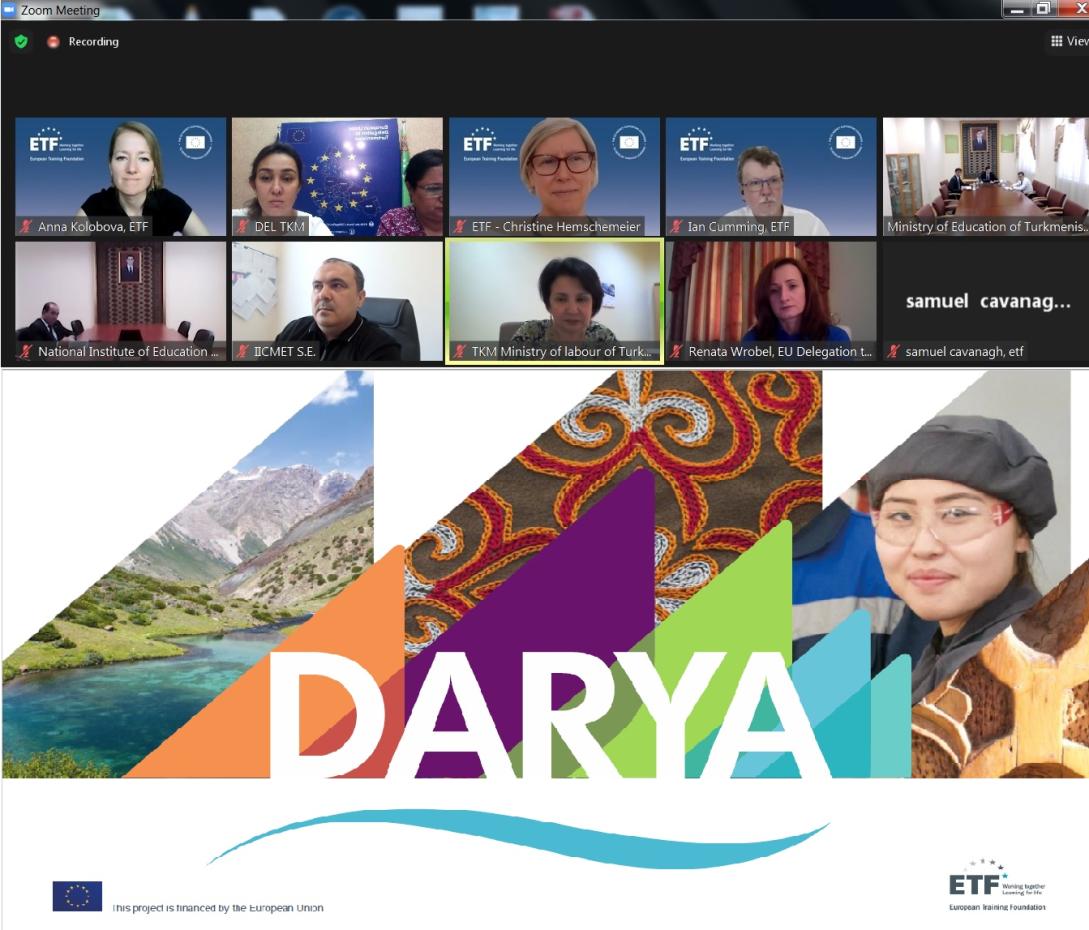DARYA holds Online consultation meeting with the Government of Turkmenistan

On 27 July 2022, the European Training Foundation (ETF), the EU Delegation to Turkmenistan and the Ministry of Education and the Ministry of Labour and Social Protection of Turkmenistan, and other Turkmen Stakeholders held the next phase of consultations on introduction of the “Dialogue and action for resourceful youth in Central Asia” (DARYA) programme.
DARYA is the first EU-funded regional project focusing on measures that support inclusive and labour market relevant skills development opportunities for young women and men in Central Asia. Starting in June 2022, DARYA will be active over the next five years in Kazakhstan, Kyrgyzstan, Tajikistan, Turkmenistan and Uzbekistan. ETF, as the EU specialist agency in vocational education and training, lifelong learning, skills and labour market development will implement the DARYA EU action.
In her welcoming remarks, Ms. Renata Wrobel, EU Delegation Chargé d'affaires a.i. noted “DARYA is especially timely as we are leaving the pandemic era and entering the post-COVID recovery phase which requires a lot of effort in bringing back jobs and what’s more important helping people to adapt to the new realities of the post-pandemic markets and economies. The programme which will run through the year 2027 also coincides with the period of modernization and digitalization of the market economy of Turkmenistan boosted by the WTO accession process which will create new jobs and businesses that will require a lot of skilled labour.”
ETF welcomes this regional cooperation action between Central Asian countries and the European Union, including individual EU Member states. Working together the ETF, EU Delegations in Central Asia and the Ministries and stakeholders of Central Asian Countries will be able to make a real contribution to the opportunities of young women and men as they complete education and training and enter into the “world of work”.
DARYA is organised into three thematic modules:
1. Better evidence and analysis of education and training outcomes and skills needs which support forward looking skills development policies and employment services
2. Stakeholder driven flexible and permeable approach to qualifications at national and regional level in order to allow equal opportunities to all
3. Flexible and inclusive teaching and learning, based on learning outcomes and relevant to the labour market
The European Union has previously funded several programmes on education in Turkmenistan, including “Support to Public Administration Capacity Building in Turkmenistan” implemented together with the Academy of Civil Servants under the President of Turkmenistan and “Support to the education sector in Turkmenistan” implemented together with the Ministry of Education of Turkmenistan. The EU has also had a special project between 2012-2016 designed to improve the quality and relevance of the vocational education system of Turkmenistan. The ETF has been a long-term partner to Turkmen institutions in their International contribution to cooperation and partnership.
